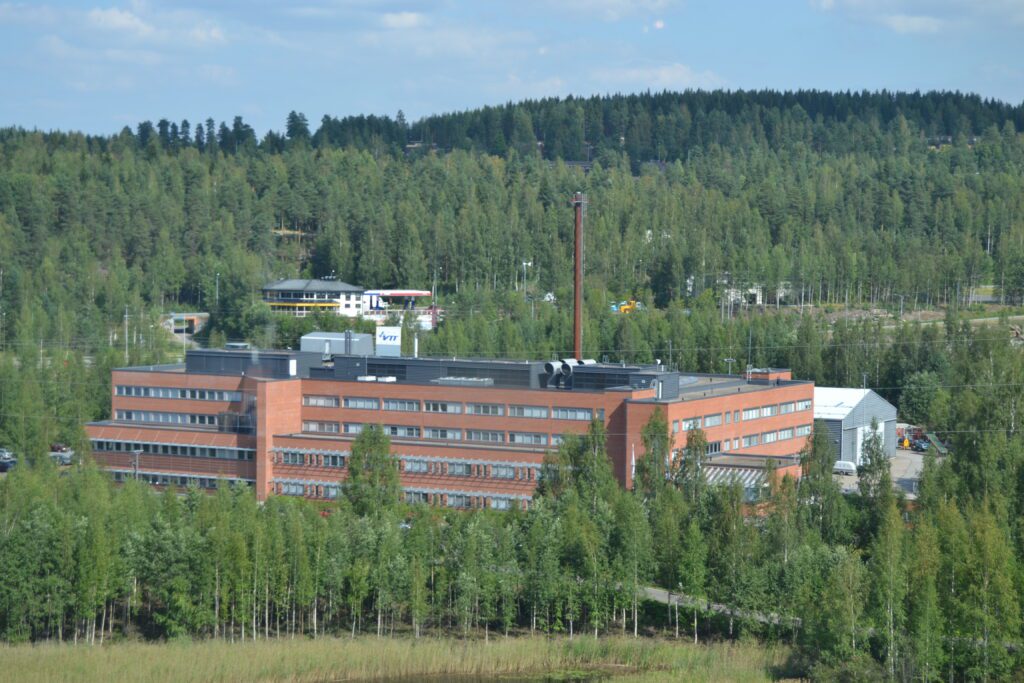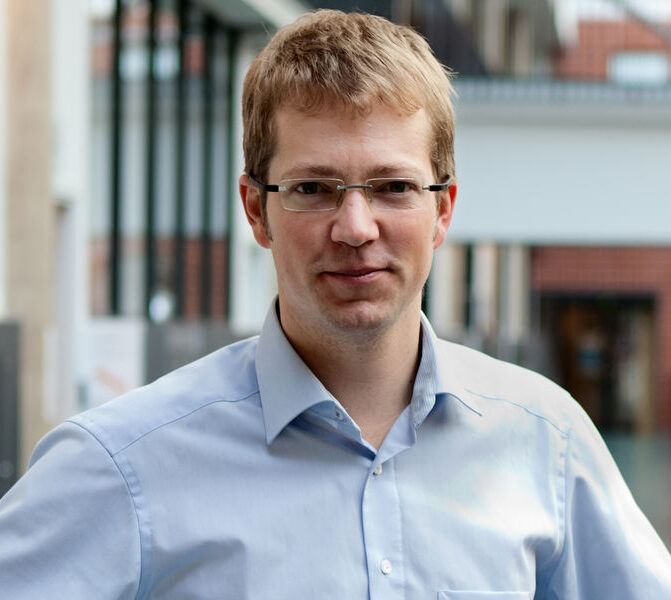Artificial Intelligence
Cyber
Future Telecoms
Materials
Quantum
Wise words and waggishness… February 2026
Reading time: 2 mins
From Nokia to Angry Birds, Finland is famed for its invention – so just what is the country doing with quantum computing? Part 2 of our ‘Innovation Hotspots’ series.
Quantum computers may look like something out of a cyberpunk science-fiction movie, but these eerily beautiful and futuristic machines are being billed as the next frontier in computing.
Unlike traditional computers which operate in binary ‘bits’, quantum computers work with ‘qubits’, which means they can work on many computations at once.
Sensitive to noise and difficult to calibrate, quantum computers operate at very cold temperatures and are prone to errors. All of this means that the field has traditionally been seen as the preserve of tech giants – firms like Google and IBM who are racing against each other to build ever more powerful and stable machines.
So little Finland – with a population of just 5.5 million – might not be on everyone’s minds as a quantum powerhouse. But everyone would be wrong.
Back in November 2020 the Finnish government was already planning its quantum strategy. It announced that it would be investing €20.7m to develop a 50-qubit computer by 2024. It recently added €70m euros to that budget, with plans to scale up to a 300-qubit machine. (For context the world’s most powerful quantum machine currently has 433 qubits.)
That ambitious roadmap looks on course. Finland’s first quantum machine – a 5-qubit device named ELMI – became operational in 2021, and the completion of Finland’s second quantum computer – a 20-qubit machine – was announced in October 2023.
Both were the result of a partnership between VTT Technical Research Centre of Finland and Finnish firm IQM, and the machines are housed in Espoo in the south of Finland.
Development of a 50-qubit machine is “already underway”, VTT announced at the time.

Finland has also facilitated something of a quantum love story – When HELMI met LUMI – which saw HELMI connected to the world’s fastest supercomputer LUMI.
While LUMI is very much a pan-European machine, it is also located in Finland, this time in the town of Kajaani. It ranks as the greenest supercomputer in Europe, powered by renewable energy and pumping its waste heat back into the local district heating system. [see how LUMI compares to other super computers in our article on Bristol poised to become the UK’s AI powerhouse]
Many experts think that the future of computing will be conventional machines and quantum-powered supercomputers working hand in hand to solve some of the world’s biggest challenges, from revolutionising drug discovery to helping solve the climate crisis.
In winter, temperatures in Finland can get as low as -45°C, cold even for a quantum machine, and overcoming difficult conditions has always been very much part of the Finnish psyche.
As VTT’s President and CEO Antti Vasara put it at the launch of the 20-qubit computer: “In Finland we have always challenged ourselves and pushed our boundaries to innovate”.
Finnish businesses are twice as likely to embrace advanced technologies compared to the EU average, according to The European Commission’s Digital Economy and Society Index.
And the country has bred some great tech talent. Home to Nokia, Linux inventor Linus Torvalds and Rovio (the firm behind Angry Birds), Finland is also leading Europe when it comes to the number of people working in ICT or providing ICT training.
It’s also a country that values education: it has a world-class higher education system, with large numbers of young people attending university which is free for Finnish nationals.
The government agency Business Finland has been instrumental in leading the quantum charge. Outi Keski-Äijö is head of the organisation’s quantum computing campaign and told Foresight that while the tech giants have deep enough pockets to pick and choose firms that might help them in making leaps in quantum, things were different in Finland.
“This is coming from our own research that has been done for many, many years. Forty years ago in a laboratory, a team was trying to reach the coldest temperatures ever, close to absolute zero. And every month there was a new record.”

As well as seeing how low they could go, the wider point of the research was to explore the possibilities of physics at such temperatures.
Many things become possible, including superconductivity, which is now the basis of the quantum machines in Finland.
Superconductive metal laid on top of traditional silicon makes a chip that is very scalable and fast, explained IQM’s co-founder Dr Juha Vartiainen.
Business Finland has been instrumental in leading the quantum charge.
IQM was spun out of Aalto University and VTT, and the company has to date raised €200m, mostly in private venture capital from Finnish and German investors.
The history of quantum research in the country meant it was easy to recruit “20 quantum PhDs who were all living in the same area”, and the firm set about building Finland’s first quantum machine out of things found “in the corner of our labs,” joked Dr Vartiainen.
There are many other start-ups in the country working on quantum problems. Bluefors develops ultra-low temperature cooling solutions, while Helsinki-based Algorithmiq is developing quantum algorithms as a way of extracting information from the machines to solve the most complex problems in life sciences.
Algorithmiq has already worked with AstraZeneca and IBM, and last year raised €13.7m in Series A funding. It is currently participating in a research project in the US focused on healthcare.
Quantum computers, by their very nature, behave unpredictably and will require new ways to solve problems. Sensibly, Finland seems to have an end-to-end strategy – with its first quantum machines being used to train researchers and students in the methods that will be crucial for these machines to have practical uses in the real world.
In January 2024, the Research Council of Finland awarded €13m to fund quantum research, education and technology development.

A newly launched partnership, dubbed the Finnish Quantum Flagship (FQF) and made up of the universities of Aalto, Helsinki, Tamper and Oulu, will be leading the way.
Professor Peter Liljeroth, FQF director and professor of physics at Aalto University, described Finland as “one of the known forerunners in quantum technologies.
“Although global competition is getting fierce, the spirit of collaboration among Finnish universities, research institutions, government agencies and industrial partners is what sets us apart from other countries,” he added.
There is clearly a worldwide shortage of quantum expertise which Finland is looking to help fill. There are currently around 500 people working in academia on quantum in the country and Bachelor’s and Master’s degrees are on offer at Aalto University, which has a dedicated quantum lab. Professor Liljeroth is also hoping to create around 60 quantum doctorate positions in the near future.
Finland is keen to attract foreign expertise too. Schemes like Erasmus, which allows non-Europeans to make their career in Finland if they are already studying in the EU, will ensure a talent pipeline for the future.
Next-up in Innovation Hotspots, Lucy Paine takes a look at Canada’s attempts to drive telecoms innovation through closer ties between its public and private sectors.

Jane Wakefield has been a technology journalist for more than 20 years covering every aspect of technology, from regulation to broadband, smart cities to artificial intelligence. She has travelled the world making radio docs for the BBC, including witnessing a world first drone flight across Lake Victoria. Her dubious claim to fame is being the first UK journalist to interview a sex robot. She is now a freelance writer, podcaster, media trainer and conference host.
Quantum
Reading time: 10 mins
Quantum
Reading time: 10 mins
Future Telecoms
Reading time: 2 mins
Quantum
Reading time: 11 mins
Quantum
Reading time: 5 mins